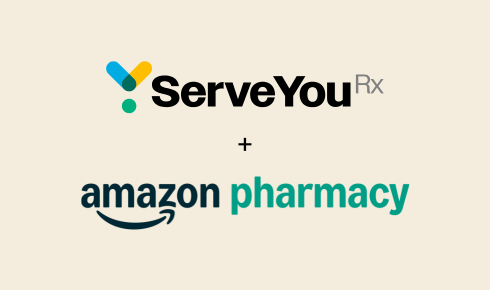News/Blogs
Pharmacy Benefit Compliance Updates: Q1 2025

The healthcare regulatory landscape saw significant developments in late 2024 and early 2025, with multiple actions affecting pharmacy benefits, preventive services, and PBM operations. From FTC lawsuits against major PBMs over insulin pricing to new IRS guidance on preventive care benefits, these updates reflect ongoing scrutiny of prescription drug pricing and access across federal and state jurisdictions.
At Serve You Rx, we monitor these developments closely so you can focus on what matters most – serving your clients. The following summary highlights key regulatory actions, legal challenges, and industry developments that pharmacy benefit stakeholders should monitor as we navigate 2025.

Laws, Regulations, and Guidance:
- The U.S. Departments of Labor, Health and Human Services, and the Treasury proposed rules expanding access to preventive services under the Affordable Care Act and reducing barriers to contraceptive coverage. The Departments also released guidance addressing coverage of pre-exposure prophylaxis (PrEP), medication that reduces the risk of HIV infection.
- The Internal Revenue Service (IRS) released its 2025 cost-of-living adjustments applicable to employee benefit plans.
- The IRS also released Notice 2024-75 and Notice 2024-71, which address the tax treatment for condoms and expand preventive care benefits permitted to be provided in high deductible health plans without requiring payment of a deductible.
- The U.S. Department of Health and Human Services (HHS) issued a Proposed Rule to enhance cybersecurity and better protect the U.S health care system from cyberattacks. The proposed rule would modify the Health Insurance Portability and Accountability Act of 1996 (HIPAA) Security Rule, requiring health plans, health care clearinghouses, most health care providers, and their business associates to strengthen cybersecurity protections for individuals’ protected health information.
- More than 20 states published significant PBM-related laws or rules. Examples include: New York unveiled strict regulations on PBMs, Arkansas enacted emergency rulemaking allowing collection of certain pharmacy reimbursement data and other information and Massachusetts passed a law requiring PBMs to report data and obtain a license to operate in the state.
- The ALEC Task Force on Health and Human Services formally adopted the Pharmacy and Patient Protection Act as model legislation.
- PBM regulation provisions were excluded from the end-of-year government funding bill.
- President Biden signed into law two bills reducing employer reporting requirements under the Affordable Care Act, easing employer (and carrier) responsibilities for Form 1095-C (and Form 1095-B) reporting. View the Paperwork Burden Reduction Act and Employer Reporting Act.
- President Trump signed a sweeping order aimed, in part, at reversing several Biden administration executive orders on health care.

Events and Litigation:
- The Federal Trade Commission (FTC) filed a lawsuit in September 2024 against the nation’s three biggest pharmacy benefit managers—Caremark, Express Scripts, and Optum Rx—over insulin prices in the U.S. In response, these PBMs sued the FTC, claiming the agency’s case is unconstitutional.
- Several lawsuits allege that GoodRx conspired with certain pharmacy benefit managers (PBMs) to fix reimbursement rates.
- Cigna and two lobbying groups representing large, self-insured employers and unions sued the commissioner of Minnesota’s Department of Commerce, alleging that the state’s pharmacy benefit manager (PBM) regulation law is unconstitutional and preempted by federal benefits law.
- The FTC released its second Interim Report on PBMs, focusing on specialty drug contracting strategies.
- The Supreme Court will hear a challenge to the Affordable Care Act’s requirement for preventive services. The case, brought by Texas employers, argues that the panels advising HHS on required services are unconstitutional.
- The Departments issued their 2024 Report to Congress on the Mental Health Parity and Addiction Equity Act (MHPAEA) enforcement and implementation, highlighting the progress of group health plan and health insurance issuer compliance while addressing ongoing challenges. The report also outlines the efforts of the Departments to enforce the MHPAEA.
Give your clients the insights they want.
Fill out the form below, and discover the Serve You Rx difference.
About Serve You Rx®
Serve You Rx is a full-service pharmacy benefit manager (PBM) with unquestionable flexibility and an unwavering commitment to doing what's best for its clients. With a fervent focus on those it serves, including insurance brokers, consultants, third-party administrators, and their clients, Serve You Rx delivers exceptional service and tailored, cost-effective benefit solutions. Independent and privately held for nearly 40 years, Serve You Rx can implement new groups in 30 days or less and say "yes" to a wide variety of viable solutions. Known for its adaptability, quality, and client-centricity, Serve You Rx aims to be a benchmark for better client service.



